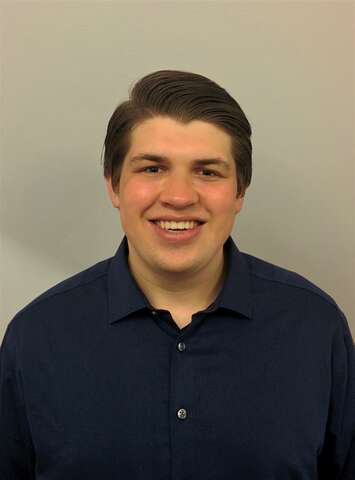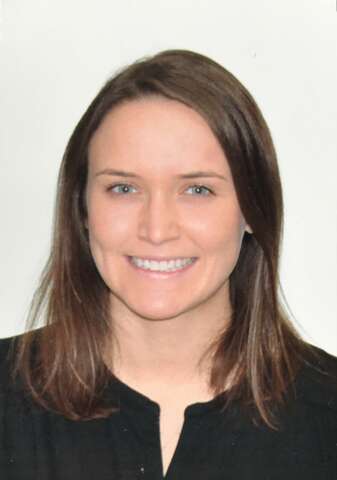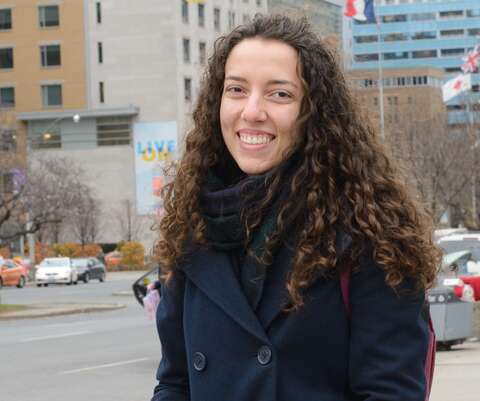Medical Student Leadership in Family Medicine Research

Family medicine and primary care form the foundation of our health care system in Canada, and research in family medicine is crucial to improving the health of our population. At the University of Toronto, medical students are taking a keen interest in conducting research in family medicine. A number of family medicine research projects were on display at this year’s Medical Student Research Day held in February 2019. The one-day conference aims to showcase research projects undertaken by second-year medical students at the University of Toronto. We spoke with three students to learn more about the family medicine-related projects they showcased at the conference.

| David WiercigrochHaving an interest in health services research, David worked with Drs. Hasan Sheikh and Jennifer Hulme, both faculty members at the University of Toronto Department of Family and Community Medicine (DFCM), to conduct research at the Rapid Access to Addiction Medicine (RAAM) Clinic at Toronto Western Hospital (TWH). The RAAM Clinic is part of a larger network of clinics in Toronto that aims to establish low-barrier access to treatment for those who suffer from a substance use disorder. Substance users report poorer access to primary care and face increased stigma in the waiting room and during interactions with primary care providers. They often do not receive the treatment they need at the time they need it most, resulting in them going to emergency departments. RAAM Clinic patients are seen on a walk-in basis, and do not require an appointment or a referral. They are connected to the clinic by their family physician, the emergency department or withdrawal management services in the community. David’s research project presented at the conference found that the model was effective in providing patients with required medicine and treatment, and led to reduced substance use for ongoing patients. Future research may include comparing the long-term outcomes of the RAAM model with traditional care. Moving forward, Wiercigroch hopes to continue to conduct research in addictions medicine and access to health services for vulnerable populations. |

| Kathleen TroughtKathleen is currently interested in studying family medicine and participated in a research project over the past summer under the supervision of Dr. Karen Fleming, an assistant professor at DFCM, which explored the pregnancy outcomes of high-level and elite athletes. In the past few years, there has been a lot of buzz in the media surrounding professional athletes who are training or competing while they are pregnant; for example, professional tennis player Serena Williams famously won the Australian Open in 2017 while she was in the first trimester of her pregnancy. Although the benefits of prenatal exercise are well known and exercise guidelines exist for healthy women with low risk pregnancies, there is very little research on the effects of high intensity exercise on pregnancy outcomes. Additionally, the existing research is quite conflicting: some studies have found no harm of vigorous exercise, but other studies have found there may be a limit to how much one should exercise during their pregnancy. Thus, the question is: could too much exercise during pregnancy be a bad thing? Kathleen aimed to tackle this question by studying high-level and elite female swimmers with Masters Swimming Canada. The survey study found low rates of pregnancy complications in their sample of women, even though most of them continued to train more than 300 minutes per week during their pregnancy, with a third of them still participating in competitions. This level of intensity is well above the Canadian pregnancy guidelines. While this study begins to answer a broader question surrounding exercise during pregnancy, more research needs to be conducted. Future research may include a different sample of athletes, such as Olympic athletes, to determine if there is an upper limit to the intensity or frequency level of exercise that could potentially put the mother or fetus at harm. In future, Kathleen hopes to continue in research in family medicine, and is particularly interested in the field of women’s health and obstetrics. |

| Emily BellicosoWorking under the supervision of Dr. Andrew Pinto, an assistant director at DFCM and director of the Upstream Lab, Emily worked on a research project related to the social determinants of health, the personal, economic, social, and environmental factors that greatly influence health. For example, income is a critical social determinant of health, so Emily’s research focused on precarious employment, defined as work that is poorly paid, poorly regulated, highly insecure and without workplace protection. Individuals experiencing precarious employment are likely to experience negative mental and physical health consequences including stress, anxiety, gastrointestinal disease, and cardiovascular disease. Emily’s project aimed to validate a set of questions to screen individuals for precarious work. The hope is that these questions will be used in primary care to screen for individuals who are experiencing precarious employment and its associated health consequences, similar to how you would screen for smoking or poor diet. The study is still ongoing, and the team continues to recruit patients for the study today. In the future, Emily hopes to continue to conduct research on the social determinants of health, and contribute to the development of health policy and the greater body of medical knowledge that affect patients beyond those seen in individual clinical practice. |
News



